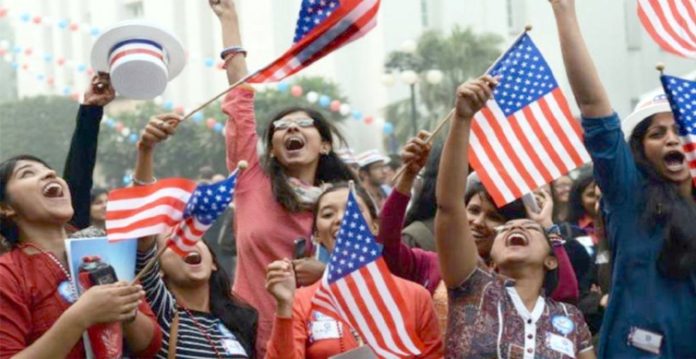In a decision that has sent shockwaves through global academic circles, the Trump administration has temporarily suspended the scheduling of new visa interview appointments for international students and exchange visitors. The move, led by Secretary of State Marco Rubio, forms part of a wider initiative to intensify social media vetting for all F, M, and J visa categories.
The US State Department has issued instructions to embassies around the world to pause the scheduling of new interviews for student and exchange visitor visas. This includes the F-1 visa for academic programs, the J-1 visa for exchange visitors, and the M-1 visa for vocational training. While officials have emphasized the measure is temporary, no specific timeline has been provided for when services will resume, leaving thousands of students in a state of uncertainty.
The core reason cited for the halt is a comprehensive overhaul of the applicant screening process, with a strong emphasis on enhanced scrutiny of social media activity. While national security is the stated objective, the timing and breadth of the decision raise questions about underlying political motivations, especially as tensions between the administration and academic institutions continue to escalate.
Also Read: Fake Gulf Visa Racket Busted at Hyderabad Airport, Two Agents Arrested
The immediate fallout is being felt by students hoping to begin studies in the United States in Fall 2025. With visa processing already requiring significant lead time, this suspension could derail academic plans for thousands who have secured university admissions but have yet to complete the visa process. It also adds further pressure to consular services, which may face major backlogs once operations resume.
The United States welcomed over 1.13 million international students in the 2023–2024 academic year, the highest number on record. Nearly 72 percent came from Asia, with India and China being the top contributors. These students are integral not only to campus diversity but also to the financial and intellectual vitality of American universities.
Institutions such as New York University, Northeastern, and Columbia are particularly reliant on international tuition fees. At elite universities like Harvard, Yale, and Northwestern, international students comprise more than 20 percent of the student body. Harvard, which has been in recent conflict with the administration over campus protests and free speech, saw its approval to admit new international students revoked just last week—a move seen by many as retaliatory.
The suspension also poses threats to research output, graduate program enrollment, and cultural exchange initiatives. While the administration maintains that the focus is on national safety, critics argue the undefined nature of the policy risks politicizing student mobility and damaging the US’s reputation as a global education hub.
As international students, universities, and academic institutions await clarity, the consequences of this decision are already beginning to unfold. Delayed degrees, disrupted research, and diminished cultural exchange programs are all possible outcomes of this sweeping measure, which may have long-term implications for America’s leadership in higher education.
(This story is sourced from a third-party syndicated feed. Raavi Media takes no responsibility or liability of any nature. Raavi Media management/ythisnews.com can alter or delete the content without notice for any reason.)


